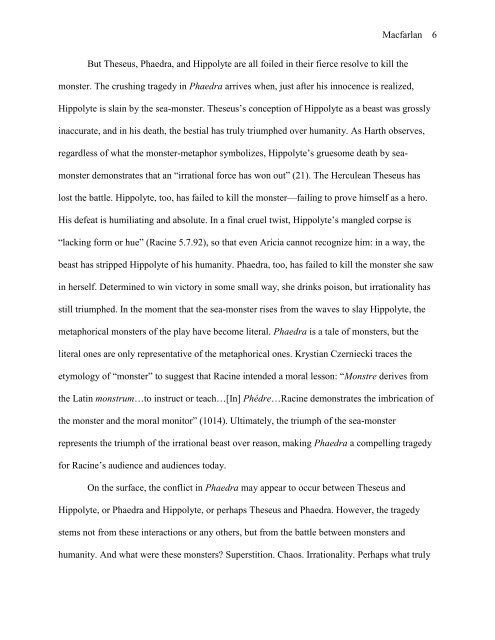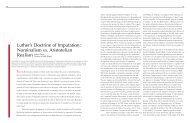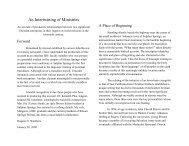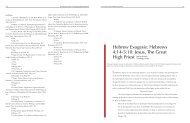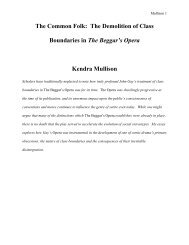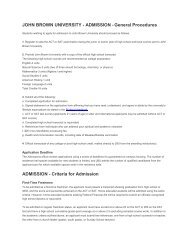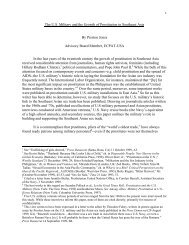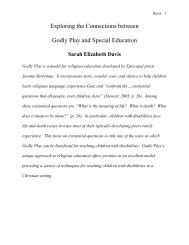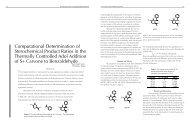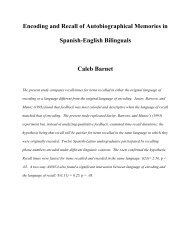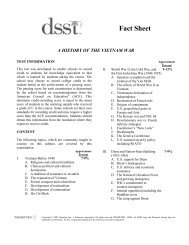Racine's Phaedra: Here There Be Monsters
Racine's Phaedra: Here There Be Monsters
Racine's Phaedra: Here There Be Monsters
You also want an ePaper? Increase the reach of your titles
YUMPU automatically turns print PDFs into web optimized ePapers that Google loves.
Macfarlan 6But Theseus, <strong>Phaedra</strong>, and Hippolyte are all foiled in their fierce resolve to kill themonster. The crushing tragedy in <strong>Phaedra</strong> arrives when, just after his innocence is realized,Hippolyte is slain by the sea-monster. Theseus’s conception of Hippolyte as a beast was grosslyinaccurate, and in his death, the bestial has truly triumphed over humanity. As Harth observes,regardless of what the monster-metaphor symbolizes, Hippolyte’s gruesome death by seamonsterdemonstrates that an “irrational force has won out” (21). The Herculean Theseus haslost the battle. Hippolyte, too, has failed to kill the monster—failing to prove himself as a hero.His defeat is humiliating and absolute. In a final cruel twist, Hippolyte’s mangled corpse is“lacking form or hue” (Racine 5.7.92), so that even Aricia cannot recognize him: in a way, thebeast has stripped Hippolyte of his humanity. <strong>Phaedra</strong>, too, has failed to kill the monster she sawin herself. Determined to win victory in some small way, she drinks poison, but irrationality hasstill triumphed. In the moment that the sea-monster rises from the waves to slay Hippolyte, themetaphorical monsters of the play have become literal. <strong>Phaedra</strong> is a tale of monsters, but theliteral ones are only representative of the metaphorical ones. Krystian Czerniecki traces theetymology of “monster” to suggest that Racine intended a moral lesson: “Monstre derives fromthe Latin monstrum…to instruct or teach…[In] Phédre…Racine demonstrates the imbrication ofthe monster and the moral monitor” (1014). Ultimately, the triumph of the sea-monsterrepresents the triumph of the irrational beast over reason, making <strong>Phaedra</strong> a compelling tragedyfor Racine’s audience and audiences today.On the surface, the conflict in <strong>Phaedra</strong> may appear to occur between Theseus andHippolyte, or <strong>Phaedra</strong> and Hippolyte, or perhaps Theseus and <strong>Phaedra</strong>. However, the tragedystems not from these interactions or any others, but from the battle between monsters andhumanity. And what were these monsters? Superstition. Chaos. Irrationality. Perhaps what truly


